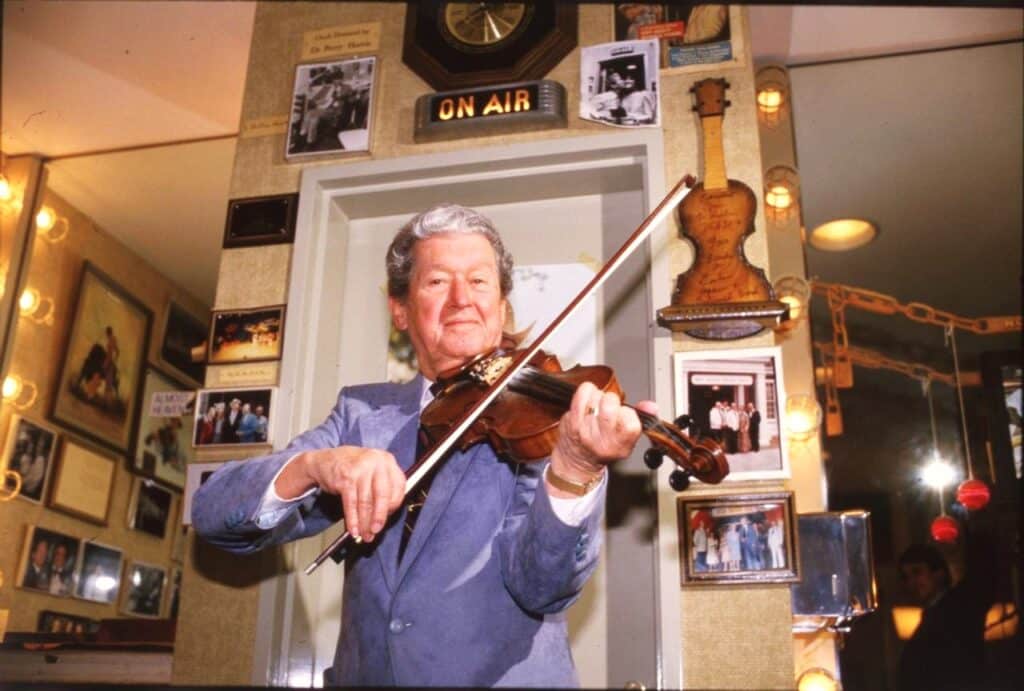Roy Acuff’s name is carved into the very foundation of country music — not just as an early star, but as a force who transformed the genre forever. Hank Williams himself once said, “He’s the biggest singer this music ever knew. You booked him and you didn’t worry about crowds. For drawing power in the South, it was Roy Acuff, then God.” In the long, winding history of the genre, few tributes have ever been more honest.
It was Acuff who helped move country music from its early string-band roots into a singer-centered sound, shaping what modern country would eventually become. And before Willie Nelson ever recorded his first No. 1 hit, it was Roy Acuff who first popularized “Blue Eyes Cryin’ in the Rain” — a song that would later define Nelson’s legacy, but began its journey with Acuff’s voice.
On this day in 1992, country music lost its king. Roy Acuff passed away at the age of 89 at Baptist Hospital in Nashville, leaving behind a legacy so enormous that artists still stand in his shadow.
Born on September 15, 1903, in Maynardville, Tennessee, Acuff grew up in a family that valued both music and achievement. Talented in multiple sports, he dreamed of becoming a professional baseball player — a dream cut short when a severe sunstroke left him unable to tolerate sunlight. Instead of giving up, he shifted his world to the evenings, sitting on the porch after sunset, practicing the fiddle that would change his life.
@countryandchristainguy #countrymusic #royacuff#fyp #wabashcannonball ♬ original sound – Dylan’s country/christian tok
By the 1930s, Acuff had entered the medicine-show circuit, performing for crowds craving entertainment during hard times. Soon after, he formed the Crazy Tennesseans, who later became the Smoky Mountain Boys. In 1936, talent agent Arthur Satherly spotted Acuff’s talent and signed him to Columbia Records.
Acuff used to say, “I was one of the first fellas who reared back and hit a microphone with a strong voice.” And he wasn’t wrong. His powerful, commanding style was unlike anything country audiences had heard, helping usher in a new era of vocal-driven performance.
His rise at the Grand Ole Opry was meteoric. Songs such as “The Great Speckled Bird” and “Wabash Cannonball” became cornerstones of American music, cementing his status as the Opry’s reigning star. By the early 1940s, Roy Acuff wasn’t just a performer — he was the face and heartbeat of country music.
In 1942, Acuff partnered with songwriter Fred Rose to create Acuff-Rose Publishing, a company that would go on to become the most influential country music publisher in the world. They championed artists, protected songwriters, and shaped the business side of country music with visionary precision.
When Acuff passed away, tributes poured in, but one quote summed up the loss better than any other. Country legend Porter Wagoner told the Los Angeles Times:
“I think he’ll be missed probably more than any entertainer or singer ever has in the history of our business, because Roy Acuff was certainly known worldwide. I don’t think anyone will ever replace Roy Acuff.”
He was The King of Country Music — and in many ways, he still is.

